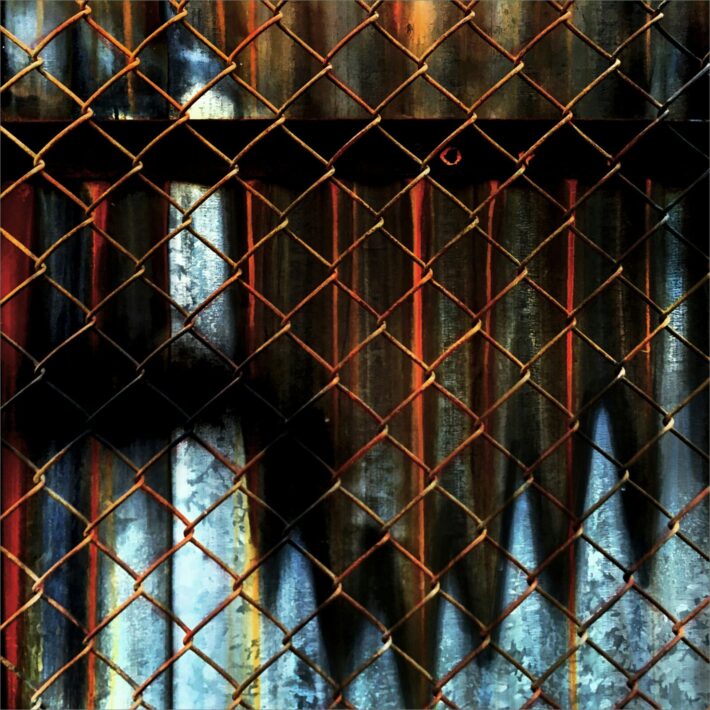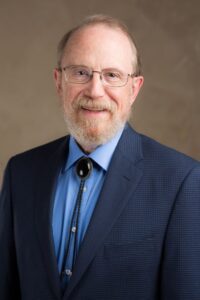
The story of Moses and the burning bush is a prelude to the exodus, the dramatic delivery of the Hebrew people from slavery in Egypt. It is the central salvation story of Hebrew scripture, remembered in the Jewish Seder service. It is a powerful image, not just in Hollywood film, but in the human journey. The exodus was a vital image of hope for African Americans from the time of slavery to Martin Luther King, Jr.’s final sermon before his assassination.

But this story, that is for the Hebrews a tale of grand deliverance, is, from an Egyptian perspective, the story of a hideous massacre. It stands as the first of many stern warnings in scripture against oppression, the inevitable result of which is reversal and disaster. No one would wish to be an oppressor in the hands of an angry Old Testament God. And to make matters worse, no one even feels sorry for oppressors when their downfall finally comes. Well, almost no one. There is a Talmudic story that when the Red Sea engulfed the Egyptian chariots and soldiers, the angels of heaven broke into cheering and song, but God silenced them, saying, “How can you sing when my people are perishing?”
The theme of oppression as hazardous to your spiritual and eternal health is strong in the prophets and in the teachings of Jesus as well. In the Sermon on the Mount, the people who are singled out as blessed are the poor, the hungry, those who weep, who are reviled and excluded and defamed. These are the blessed, for whom the gospel is good news indeed. But in Luke’s account, Jesus also singles out others for woe, as a curse rather than a blessing: those who are rich, satisfied, spoken well of, and laughing. You must decide for yourself which side of that aisle you sit on, but it’s clear to me that I fall on the woeful side as having a disquieting amount of wealth, comfort, happiness, and praise.
Just in case we missed the point, Luke’s Jesus carries on this theme in the parable of the rich man and Lazarus. However you interpret this story – literally or symbolically – it’s bad news for the rich man who received good things during his life, but did not share them with the homeless man on his doorstep. In sending out his disciples to minister, Jesus instructs them to take no money at all. The camel and the eye of the needle, the rich young ruler, the pious Pharisees who lay on heavy burdens – all are stern warnings of the dangers of wealth and mortal power.
So here is my central theme: the oppressed are not the only ones in need of liberation. There is a complementary oppressing confinement for those with the upper hand, who are themselves on a slavish road to destruction. A vexing aspect of this prison of privilege is that we may not even recognize its walls as limiting. The consistent witness of scripture is that oppression is bad for all parties, all of whom are in need of salvation. We need to have a faith that no amount of prosperity, comfort, security, or success can take away.
The book The Spirit Level meticulously documents how both rich and poor fare worse if they live in a more unequal society, one where there is a large income gap between rich and poor. In the United States, the top 20% earn about nine times as much as the bottom 20% – the highest level of income inequality since 1929. In some corporations, the CEO earns 500 to 1000 times more than the average salary of employees, a ratio that rivals medieval feudalism. Now, such injustice is obviously much harder on the poor, but the rich also pay a price for inequality in society. On average, as a people we are (whether rich or poor) less healthy, more obese, more depressed and anxious, take more psychiatric medications, have more teen pregnancies and infant mortality, more violence and homicide, more prisons, more alcohol/drug problems, and die younger, in direct proportion to the size of the gap between rich and poor. These problems are not driven by the average income in a state or developed country, but by the degree of income inequality. People at the same income level in more equal societies fare far better on all these measures. Living in an unjust society is bad for all of us.
Another striking book in this regard is Until It’s Gone by Scott Miller, the driving force behind the national Circles organization to help lift people out of poverty. The central argument of his book is that poverty is unnecessary, and can be eliminated in our lifetime if the political will is there. Poverty is not inevitable – it is a product of social policy. It is not necessary to have people living in poverty so that others can have enough or be prosperous. We do not need have-nots so that others can have. It is not necessary for some people to go hungry or to have no place to live. It is only inequality that is a zero sum game: In order for someone to become richer relative to the population, others must become poorer. It is self-promotion at the expense of and to the neglect of others that is oppression.
That’s a pretty large dose of Christian guilt. (Being Christian, as they say, does not keep you from sinning; it just keeps you from enjoying it.) So what is the good news? Certainly it is that God loves us all, and wants for the truth to set us free. Both the rich and the poor were there at Jesus’ birth, and also at his death. In a way we – the wealthy and the poor – together hold the keys to each other’s prison cells. What we need in order to be free is symmetrical, complementary. The poor have blessings to share with the rich. The wealthy have resources to share for the common good.
Architecture of the prison of privilege
The prison of privilege has four walls, which I’ll explain before suggesting an antidote for each of them. First there is the wall of greed. I saw a bumper sticker last year that said, “I’ll keep my money and my guns. You can keep your change.” Greed is the sense of urgency that we need to accumulate more resources for ourselves. It values individual gain over common good. It honors people for what they have – and drive, and wear, and live in – rather than for what they do for their community. It is a value that the ultimate good is to keep as much for ourselves as we can, and build bigger barns to hold it all. A good antidote for greed is generosity. “Sell what you have and give the money to the poor,” was Jesus’ loving advice to a rich young man who wondered what else he could do to enter the kingdom of heaven. Few of us are willing to take a vow of poverty, but the lesson is there. Giving away generously is a preventive vaccine for greed.
Second there is the wall of anxiety. Sometimes we are driven not by outright greed per se, but by its unconscious cousin – the fear that we will not have enough, and will be on our own with no one to help us. This anxiety was particularly strong in my parents’ generation who lived through the great depression. It can be a fairly constant, nagging worry, which is exacerbated as economic inequality grows. Jesus’ advice here is simply not to worry about what we will eat or wear, but trust in God’s abundant grace. This is far easier said than done for modern Americans. Then there is the antidote of simplicity. The more stuff we accumulate, the more time and worry and resources we devote to maintaining it. Possessions can come to possess us. Above the basic needs and a little more, additional money and stuff do not make us any happier, as individuals or as a society. The idea of “retail therapy” – that “shopping is always the answer” – is an insidious myth of commercialism. It brings no more enduring happiness than a line of cocaine or a computer game. The less we have, the less we have to worry about. We worship Jesus Christ, a homeless man who was despised and rejected, who was poor and no doubt hungry at times, and who was killed by those in power. He had no possessions to worry about, lived a simple life, and gave thanks for what he did have. Simplicity alleviates anxiety.
A third wall of the prison of privilege is entitlement. This is the belief that I deserve what I have and more. I am entitled to pay as little tax as possible. I have it coming to me. It’s mine – it belongs to me. A spiritual remedy here is gratitude, to be actively thankful for that which we have. Thanksgiving is a key component of worship and prayer, and of a healthy spiritual life. When we are expressing appreciation for the gifts that we have, we’re less likely to be saying, “Gimme more!” It is also useful, in counteracting entitlement, to have just a weekly dose or two of confessional humility. A friend of mine in Alcoholics Anonymous says, “Thank God we don’t get what we deserve!”
Lastly there is the prison wall of envy, of wanting what others have. “Do not covet” is the last of the Ten Commandments. This, too, is exacerbated by economic disparity. Greater social inequity in possessions and lifestyle tends to foster jealousy. And jealousy has an interesting double-edged meaning: it means both resentment of others’ advantage, and vigilance in maintaining and guarding one’s own advantage. Once again, both captives and captors are enslaved. An antidote to the poison of envy is found in the Hebrew Dayenu – “It would have been enough . ,” that is part of the Seder, and more generally calls to mind and takes to heart that what we have is sufficient for our needs. It is the spirituality of enough. In Philippians 4, Paul says, “I have learned to be content with whatever I have. I know what it is to be in need, and I know what it is to have plenty. I have learned the secret of being content in any and every situation, whether well fed or hungry, whether living in plenty or in want.” The Dayenu acknowledges that God not only has provided enough for our needs, but has given us more than enough, over and over again.
Greed, anxiety, entitlement, and envy. These are walls of the prison of privilege. Generosity, simplicity, gratitude, and contentment. These are keys to the prison door.
May we know to the depths of our soul God’s abiding love for us all, that is a foundation for generosity, simplicity, gratitude, and contentment. May we place our trust in that which does not crumble. God grant us a faith that no amount of prosperity, comfort, security, or success can ever take away.
Dr. William R. Miller is Emeritus Distinguished Professor of Psychology and Psychiatry at the University of New Mexico. He has authored more than 400 articles and chapters and 40 books including Motivational Interviewing, Treating Addiction, and Practical Psychology for Pastors. He is an ordained elder and deacon in the Presbyterian Church (USA). The Institute for Scientific Information lists him as one of the world’s most cited scientists.This reflection was originally delivered as a sermon at St. Andrew Presbyterian Church, Albuquerque, New Mexico on Pentecost 2012. The lectionary texts were Exodus 4:1-13 and Matthew 10:9-22.